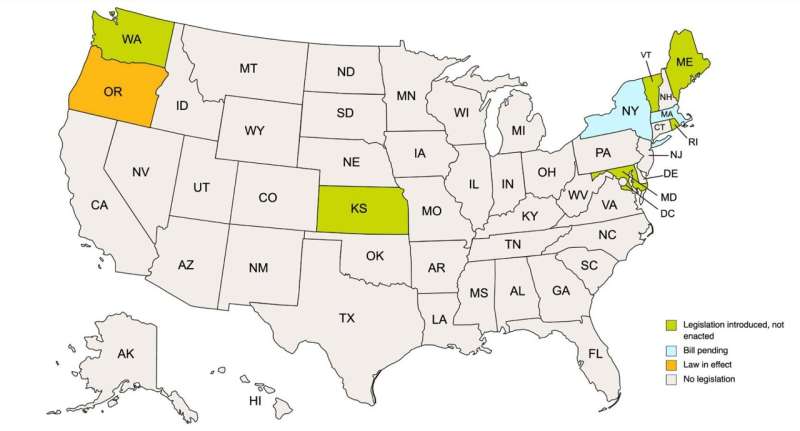Stalled momentum in state efforts to decriminalize drug possession of controlled substances

States are acting to decriminalize possession of most or all controlled substances, according to updated data released today by the Temple University Center for Public Health Law Research on LawAtlas.org that provide a high-level overview of legislation seeking to decriminalize personal drug possession.
Since January 1, 2021, eight states have introduced bills that would decriminalize personal possession of all or most controlled substances, including Kansas, Maine, Maryland, Massachusetts, New York, Rhode Island, Vermont, and Washington. Of those states, two (Massachusetts and New York) have pending decriminalization bills in place. Bills in the other six states all failed without having reached a chamber vote.
“Decriminalization efforts have gained momentum since the passage of Oregon’s Measure 110, but have been largely unsuccessful,” said Katie Moran-McCabe, Lead Law & Policy Analyst at the Center for Public Health Law Research and supervising researcher on this project. “Criminalization of drug possession contributes to the marginalization of people with substance use disorders, results in stark racial disparities, and costs billions of dollars. Decriminalization is one step to support increased equity.”
Oregon is the only state to enact a law that decriminalizes personal possession of all controlled substances, as of August 1, 2022. In November 2020, voters in Oregon approved Measure 110, which reclassified personal possession of all controlled substances from a criminal to a civil violation. The measure, which became operative in February 2021, also allocated funding for community-based organizations to provide substance use treatment and harm reduction services.
The data were produced using a novel legal mapping technique—sentinel surveillance of emerging laws and policies—developed by the Center for Public Health Law Research, to track laws faster so researchers may more quickly evaluate the impact of these laws and policies on health, well-being and equity.
Emerging efforts by states to decriminalize possession of most controlled substances
Citation:
Stalled momentum in state efforts to decriminalize drug possession of controlled substances (2022, September 8)
retrieved 8 September 2022
from https://phys.org/news/2022-09-stalled-momentum-state-efforts-decriminalize.html
This document is subject to copyright. Apart from any fair dealing for the purpose of private study or research, no
part may be reproduced without the written permission. The content is provided for information purposes only.
For all the latest Science News Click Here
For the latest news and updates, follow us on Google News.

